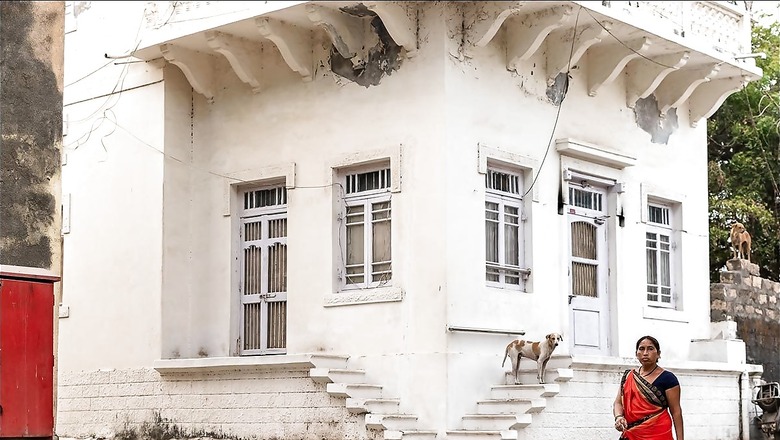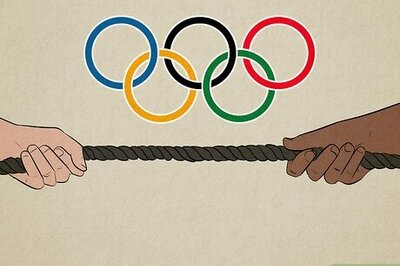
views
“Vasudhaiva Kutumbakam,” the ancient Indian saying, translates to “The World is One Family.” This profound concept encapsulates the essence of unity and interconnectedness that transcends borders and boundaries. In the context of our communities, this sentiment reminds us that we are not isolated entities but part of a larger whole. Within our neighbourhoods, it’s the people who work relentlessly behind the scenes, often in unnoticed roles, who uphold the values of unity and cleanliness, embodying the spirit of Vasudhaiva Kutumbakam.
One group of unsung heroes who exemplify this spirit are the women sanitation workers who tirelessly serve in our local neighbourhoods. These remarkable individuals play a pivotal role in creating cleaner and healthier communities, often without receiving the recognition they truly deserve.
The Guardians of Health
Women sanitation workers are the guardians of public health in our neighbourhoods. They work relentlessly to collect and dispose of waste, ensuring that our surroundings remain free from disease-causing contaminants. Their efforts in garbage collection, waste disposal, and maintaining public toilets contribute significantly to disease prevention and overall well-being.
Take the story of Rani Devi from Patna, Bihar. Rani was left to fend for herself after her husband’s departure, working as a domestic helper for her livelihood. However, Rani’s determination and the training she received through organisations like the United Nations Population Fund (UNFPA) transformed her life.
Rani took it upon herself to form a women’s sanitation worker group focused on mechanised cleaning. Under her leadership, this cooperative team tackled sewer cleaning and waste management with pride and dignity. Rani and her team not only improved their own lives but also made their neighbourhood cleaner and safer.
Agents of Change
Another aspect of their work makes them formidable agents of transformation is advocacy. Women sanitation workers who, through training and education, are able to transform their own lives, will almost always reach out to their peers, and share what they have learnt.
Usha Chaumar’s story from Alwar, Rajasthan, is a shining example of this. Usha entered sanitation work at the tender age of 7, bearing all the discrimination and social stigma the profession is associated with. However, she chose to defy these stereotypes and through the support and training she received from Sulabh International, became a shining example for change.
Today, she is the President of Sulabh International Social Service Organisation, inspiring and enabling thousands of other sanitation workers like herself. Moreover, Usha has created a life for herself that is exemplary in itself, and provides inspiration to many women like her – her oldest son is pursuing a postgraduate degree, something she knows he wouldn’t have had access to, without the choices she made.
Empowering Backward Communities
In India, the caste system adds another layer of complexity to the discrimination that sanitation workers already face. Organisations like the Centre for Development (CFD) have helped many champions emerge from within these communities, thereby helping them help themselves.
Pushpaben Parmar, for instance, hails from the Valmiki community in Ahmedabad. Despite facing challenges, Pushpaben emerged as a prominent grassroots social worker. She has been instrumental in forming women’s self-help groups.
Pushpaben’s impact extends far beyond her community. She helps individuals access employment opportunities, ensuring a more secure future for them. Additionally, she played a pivotal role in forming three Sakhi Mandals under the Samaveshi Sehar project, enabling 30 women from her locality to save money regularly. “I have also been able to help women in my community avail gas cylinders (LPG) under the Ujwala Yojana,” Pushpaben proudly mentions.
Education and Empowerment
The story of Venkatalakshmi from Narsapur, Andhra Pradesh, is a testament to the transformative power of education. Hailing from a tribal community and facing societal barriers as a woman, Venkatalakshmi defied expectations. She took over her family’s desludging business, securing loans, hiring drivers, and gradually building her reputation as a successful entrepreneur. She also taught herself not just the engineering and operational aspects of the truck but also the business aspects of running the enterprise.
Today, she operates her desludging trucks and empowers her family to work alongside her.
A Brighter Future
Women sanitation workers in our neighbourhoods are not just cleaning streets; they are improving lives. Their stories highlight the critical role they play in ensuring cleaner and healthier communities. Fortunately, in India, it isn’t just NGOs and grassroots organisations that are working with these communities, but also brands with deeper pockets.
As India’s leading brand in the lavatory care segment, Harpic has a very nuanced understanding of the challenges and problems these women face. Leveraging this understanding into real world action, Harpic established the Harpic World Toilet College (HWTC) in 2016 with the stated objective of improving the quality of life of sanitation workers through their rehabilitation by linking them with dignified livelihood options. Workers trained by the college are provided placement with various organisations. Following the successful proof of concept in Rishikesh, HWTCs have opened in Maharashtra, Aurangabad, in partnership with Harpic, Jagran Pehel and Maharashtra Government.
Of course, that’s not all Harpic is doing. 3 years ago, joining hands with News18, Harpic created Mission Swachhta aur Paani – a movement that champions the cause of inclusive sanitation, equality for all genders, abilities, castes and classes and the strong belief that clean toilets are a shared responsibility.
Mission Swachhta aur Paani is powering the right conversations amongst stakeholders who have the power to make real tangible change, by bringing together stakeholders across the decision making spectrum – from elected government officials, to bureaucrats, to activists, NGOs, grassroots organisations and sanitation workers. These dialogues provoke deep understanding and corrective action at regional, municipal and hopefully, one day, national levels.
Mission Swachhta aur Paani also leverages News18’s immense reach to get these powerful stories out to readers like you. After all, society is made up of people like us. What we think and care about is what society thinks and cares about. The more we know about injustices and discrimination that keep a community down, the more compelled we are to take action against it.
Our conversations matter. Even if they are conversations around the water cooler at work, or at the dinner table at home. Conversations bring nuance, understanding, compassion and empathy. Most importantly, they also fuel action.
Join us here, to learn how you too, can be an agent of change, and help us build a more equitable, fair, compassionate, Swachh and Swasth Bharat.




















Comments
0 comment